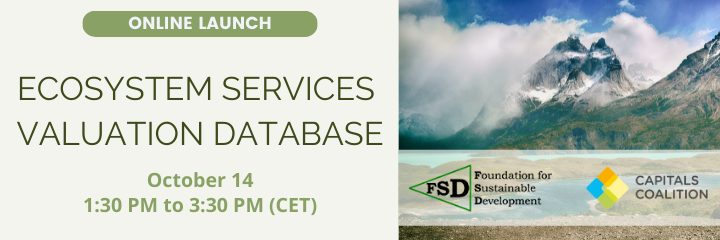What ecosystem services does nature provide? What is the monetary value of these services? How to compare different values? The Ecosystem Services Valuation Database, ESVD, gives the answers. Via ESVD.net you can gain free access to over 4500 standardized values in dollar per hectare per year providing information on all ecosystem services all over the world. Sign-up for the official online launch of the ESVD on 14 October to learn more about the ESVD.
The continued loss of ecosystems and biodiversity is endangering the prosperity of current and future generations. To make better informed decisions about the trade-offs involved in ecosystem management, land-use change, or any activity affecting biodiversity, we need better information about the full importance of ecosystems to our wellbeing. However, a good understanding of the many ecosystem services that nature provides is often missing in decision-making. Furthermore, the monetary value of these services is difficult to assess as the many thousands of existing studies from all over the globe use different methodologies and currencies, they focus on different ecosystems, they are published in different years and they can be hard to find.
Largest database in the world
To overcome the above mentioned problems, the Foundation for Sustainable Development developed the freely available online Ecosystem Services Valuation Database. The ESVD hosts the largest collection of standardized monetary values of ecosystem services in the world. It consists of over 6700 values of which over 4500 are standardized in dollar per hectare per year for an ecosystem service and ecosystem type. The ESVD is freely available online at www.esvd.net. The online interface allows easy selection and download of all values. It also contains a basic tool to generate summary statistics.
The ESVD can be used for various purposes:
- Local and global impact assessments on land-use change or climate change
- Risk assessments and cost-benefit analysis on projects and potential alternatives
- Inform society and create awareness on the economic benefits of biodiversity conservation
Find out more about ESVD and the launch webinar program here.
Register for the webinar here.
Download the event flyer here.

